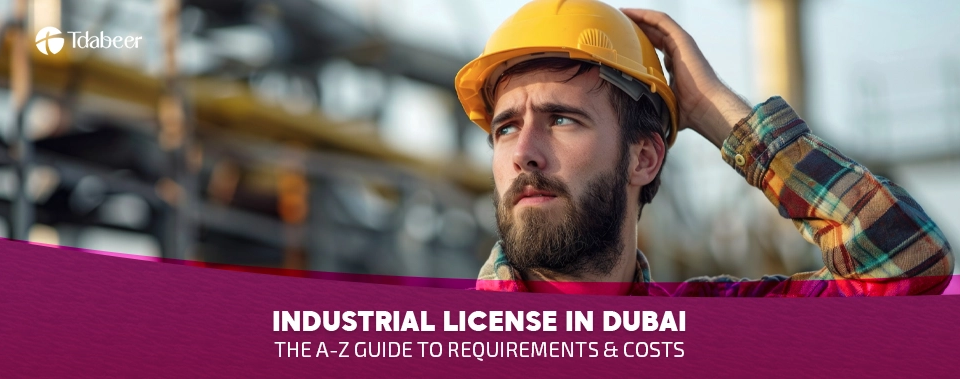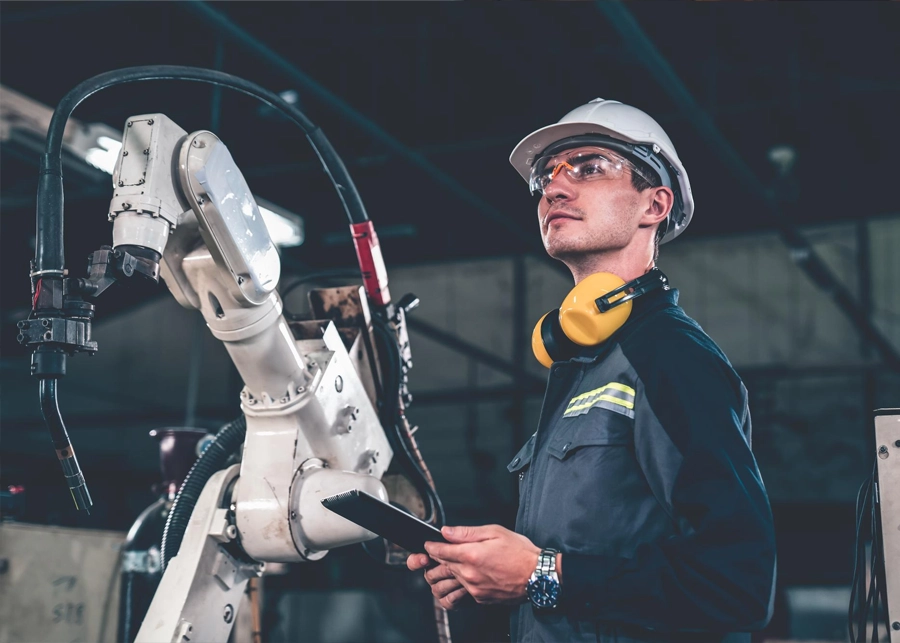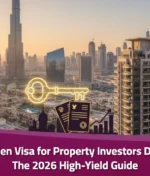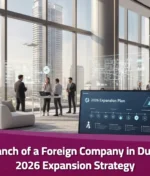
Dubai has emerged as one of the world’s fastest-growing industrial hubs, with the manufacturing sector contributing over AED 35 billion to the emirate’s GDP annually. As part of the UAE’s vision to diversify its economy beyond oil, the industrial sector now represents a strategic pillar for sustainable growth. If you’re planning to establish a manufacturing, production, or assembly operation, obtaining an Industrial License in Dubai is your essential legal gateway to enter this thriving market.
This comprehensive 2025 guide from Tdabeer covers everything you need to know—from understanding what an industrial license is, to navigating the complex approval process, calculating exact costs, and choosing the optimal jurisdiction for your manufacturing business.

What is an Industrial License in Dubai?
An industrial license is an official permit issued by Dubai’s Department of Economy and Tourism (DET), or by free zone authorities, authorizing companies to engage in manufacturing, production, and industrial activities. This license is fundamentally different from commercial or professional licenses as it grants you the legal right to:
- Transform raw materials into finished products
- Manufacture goods from various materials including metals, textiles, plastics, food products, chemicals, and electronics
- Assemble components to create final products
- Package, label, and prepare products for distribution
- Conduct quality control and testing on manufactured goods
- Store raw materials and finished products in approved industrial facilities
Who Needs an Industrial License?
An industrial license is mandatory for any business engaged in the following activities:
| Industry Sector | Examples of Activities | License Type Required |
|---|---|---|
| Food & Beverage Manufacturing | Bakeries, dairy products, beverages, snacks, confectionery | Industrial + Food Safety Approval |
| Textiles & Garments | Fabric production, clothing manufacturing, embroidery | Industrial License |
| Metals & Engineering | Steel fabrication, aluminum products, machinery parts | Industrial + Environmental Approval |
| Plastics & Packaging | Plastic molding, packaging materials, containers | Industrial + Environmental Approval |
| Electronics & Technology | Circuit board assembly, device manufacturing | Industrial License |
| Chemicals & Pharmaceuticals | Chemical production, pharmaceutical manufacturing | Industrial + Multiple Regulatory Approvals |
| Construction Materials | Cement products, tiles, bricks, insulation materials | Industrial + Environmental Approval |
| Furniture & Woodwork | Furniture manufacturing, carpentry, wooden products | Industrial License |
Mainland vs Free Zone: Where Should You Get Your Industrial License?
One of the most critical decisions you’ll make is choosing between establishing your industrial facility in Dubai mainland or in a free zone. Each option has distinct advantages:
| Factor | Mainland Industrial License | Free Zone Industrial License |
|---|---|---|
| Market Access | ✅ Full access to UAE local market without restrictions | ⚠️ Limited mainland access (requires distributor) |
| Ownership | ✅ 100% foreign ownership permitted | ✅ 100% foreign ownership guaranteed |
| Corporate Tax | ⚠️ 9% corporate tax (with exemptions available) | ✅ 0% corporate tax |
| Import Duties | ⚠️ 5% customs duty on imports | ✅ 0% customs duty |
| Setup Cost | Higher (AED 40,000 – 100,000+) | Moderate (AED 25,000 – 80,000) |
| Office Location Flexibility | ✅ Can be located anywhere in approved industrial zones | ⚠️ Must be within free zone boundaries |
| Best For | Companies targeting UAE local market and GCC region | Export-focused manufacturers and international trade |
Essential Requirements for Industrial License in Dubai 2025
Before applying for your industrial license, you must satisfy several mandatory requirements. The Dubai government has streamlined these requirements in 2025, but they remain comprehensive to ensure safety, quality, and environmental compliance.
1. Approved Industrial Location
Your manufacturing facility must be located in one of Dubai’s designated industrial areas or free zones. Popular options include:
- Mainland Options: Dubai Industrial City, Dubai Investments Park (DIP), Al Quoz Industrial Area, Jebel Ali Industrial Area
- Free Zone Options: JAFZA (Jebel Ali Free Zone), Dubai South, Dubai Silicon Oasis, Dubai Textile City, Dubai Production City
2. Physical Factory or Warehouse Facility
Unlike commercial licenses that may accept virtual offices, an industrial license requires a physical facility. The size depends on your production scale, but minimum requirements typically start from:
- Small-scale production: 500 – 1,000 sq ft
- Medium-scale manufacturing: 2,000 – 5,000 sq ft
- Large-scale industrial operations: 10,000+ sq ft
3. Minimum Capital Requirements
While Dubai has eliminated minimum capital requirements for most business activities, industrial licenses may still require:
- Mainland: No mandatory minimum (but financial viability must be demonstrated)
- Some Free Zones: AED 150,000 – AED 250,000 minimum paid-up capital depending on activity
4. Technical & Safety Standards Compliance
Your facility must meet strict technical and safety requirements:
- Fire safety systems and emergency exits
- Adequate ventilation and waste management systems
- Occupational health and safety protocols
- Environmental impact assessment (for certain industries)
- Quality control and testing equipment
Complete Document Checklist for Industrial License Application
Proper documentation is critical for a smooth approval process. Here’s the comprehensive checklist for 2025:
Personal Documents:
- ✅ Passport copies of all shareholders, directors, and managers (valid for minimum 6 months)
- ✅ Passport-sized photographs (white background)
- ✅ Residence visa copies (if applicable)
- ✅ Emirates ID copies (for UAE residents)
Business Documents:
- ✅ Completed application form (available on DET or Free Zone portal)
- ✅ Proposed trade name (3 options preferred)
- ✅ Memorandum of Association (MOA) – notarized
- ✅ Articles of Association (AOA)
- ✅ Detailed feasibility study of the industrial project
- ✅ Comprehensive business plan including production capacity, equipment details, and financial projections
Facility Documents:
- ✅ Tenancy contract (Ejari registered) for factory/warehouse
- ✅ Engineering drawings and floor plans of the facility
- ✅ NOC (No Objection Certificate) from property owner
- ✅ Layout plan showing production areas, storage, and safety zones
Regulatory Approvals:
- ✅ Dubai Municipality approval
- ✅ Civil Defense (Fire & Safety) clearance
- ✅ Dubai Health Authority approval (for food/pharmaceutical manufacturing)
- ✅ Environmental approval from Dubai Municipality (for chemical/heavy industries)
- ✅ DEWA connection approval (electricity and water)
Step-by-Step Process to Obtain Industrial License in Dubai 2025
- Initial Consultation & Activity Selection: Define your specific industrial activity from the approved DET classification. Consider working with Tdabeer experts to identify the most suitable activity code for your manufacturing operations.
- Choose Your Jurisdiction: Decide between mainland (for local market access) or free zone (for tax benefits and export focus). This decision impacts all subsequent steps and costs.
- Secure Facility & Sign Lease: Identify and lease an appropriate industrial facility in an approved area. Ensure the space meets all technical requirements for your specific manufacturing activity.
- Register Trade Name: Submit 3 trade name options to DET or your chosen free zone authority. The name must comply with naming conventions and not conflict with existing registrations.
- Prepare Initial Approval Application: Compile all required documents and submit initial approval application through the relevant portal (DED for mainland, specific free zone portal for free zones).
- Obtain External Approvals: This is often the most time-consuming step. You’ll need to coordinate approvals from multiple entities:
- Dubai Municipality (environmental and location clearance)
- Civil Defense (fire safety inspection)
- Dubai Health Authority (if applicable)
- DEWA (utilities connection)



